Turkey, straddling both Europe and Asia, is a land of extraordinary natural beauty and diverse ecosystems. From pristine coastlines and lush forests to majestic mountains and unique geological formations, the country offers a wealth of opportunities for eco-conscious travelers. Embracing eco-tourism in Turkey not only allows you to experience its stunning landscapes but also contributes to the preservation of its natural and cultural heritage. This guide provides sustainable travel tips and highlights some of Turkey’s most remarkable nature reserves and eco-friendly activities.
1. Understanding Eco-Tourism
What is Eco-Tourism?
Eco-tourism is a responsible form of travel that emphasizes conservation, sustainability, and respect for local cultures and environments. It aims to minimize the negative impacts of tourism while maximizing benefits for both travelers and host communities.
Why Choose Eco-Tourism in Turkey?
Turkey’s rich biodiversity, varied landscapes, and cultural heritage make it an ideal destination for eco-tourism. By choosing sustainable travel practices, you help protect natural habitats, support local economies, and ensure that future generations can enjoy Turkey’s natural wonders.
2. Sustainable Travel Tips
a. Choose Eco-Friendly Accommodations
- Eco-Lodges and Green Hotels: Opt for accommodations that prioritize sustainability through energy-efficient systems, waste reduction, and eco-friendly materials.
- Certifications: Look for certifications like Green Key or EarthCheck, which indicate a commitment to environmental standards.
- Local Ownership: Support locally owned guesthouses and hotels that contribute to the community’s economy.
b. Respect Wildlife and Natural Habitats
- Observe from a Distance: Use binoculars for bird watching and avoid disturbing animals in their natural habitats.
- Stay on Trails: Prevent habitat destruction by sticking to designated paths during hikes and nature walks.
- Do Not Litter: Keep natural areas clean by disposing of waste properly and participating in local clean-up efforts when possible.
c. Reduce Your Carbon Footprint
- Public Transport and Shared Rides: Utilize buses, trains, and shared transportation options to minimize individual carbon emissions.
- Bike Rentals: Explore cities and nature trails by bike to reduce reliance on motorized transport.
- Offset Carbon Emissions: Consider offsetting your travel-related carbon emissions through reputable carbon offset programs.
d. Support Local Communities
- Buy Local Products: Purchase souvenirs, crafts, and food from local artisans and vendors to support the local economy.
- Engage in Cultural Experiences: Participate in local traditions, festivals, and guided tours led by community members.
- Fair Trade: Choose businesses that adhere to fair trade principles, ensuring fair wages and working conditions for local workers.
e. Practice Responsible Behavior
- Minimal Impact: Travel light to reduce resource consumption and carry reusable items like water bottles, bags, and utensils.
- Educate Yourself: Learn about the local environment, culture, and conservation efforts to make informed and respectful decisions.
- Leave No Trace: Ensure that your presence does not leave a lasting negative impact on the places you visit by adhering to Leave No Trace principles.
3. Top Nature Reserves and National Parks in Turkey
a. Göreme National Park and the Rock Sites of Cappadocia
- Location: Central Turkey
- Highlights: Unique fairy chimneys, cave dwellings, and underground cities.
- Eco-Friendly Activities:
- Hiking and Trekking: Explore designated trails that showcase the region’s geological formations.
- Hot Air Ballooning: Choose operators committed to sustainable practices to enjoy aerial views responsibly.
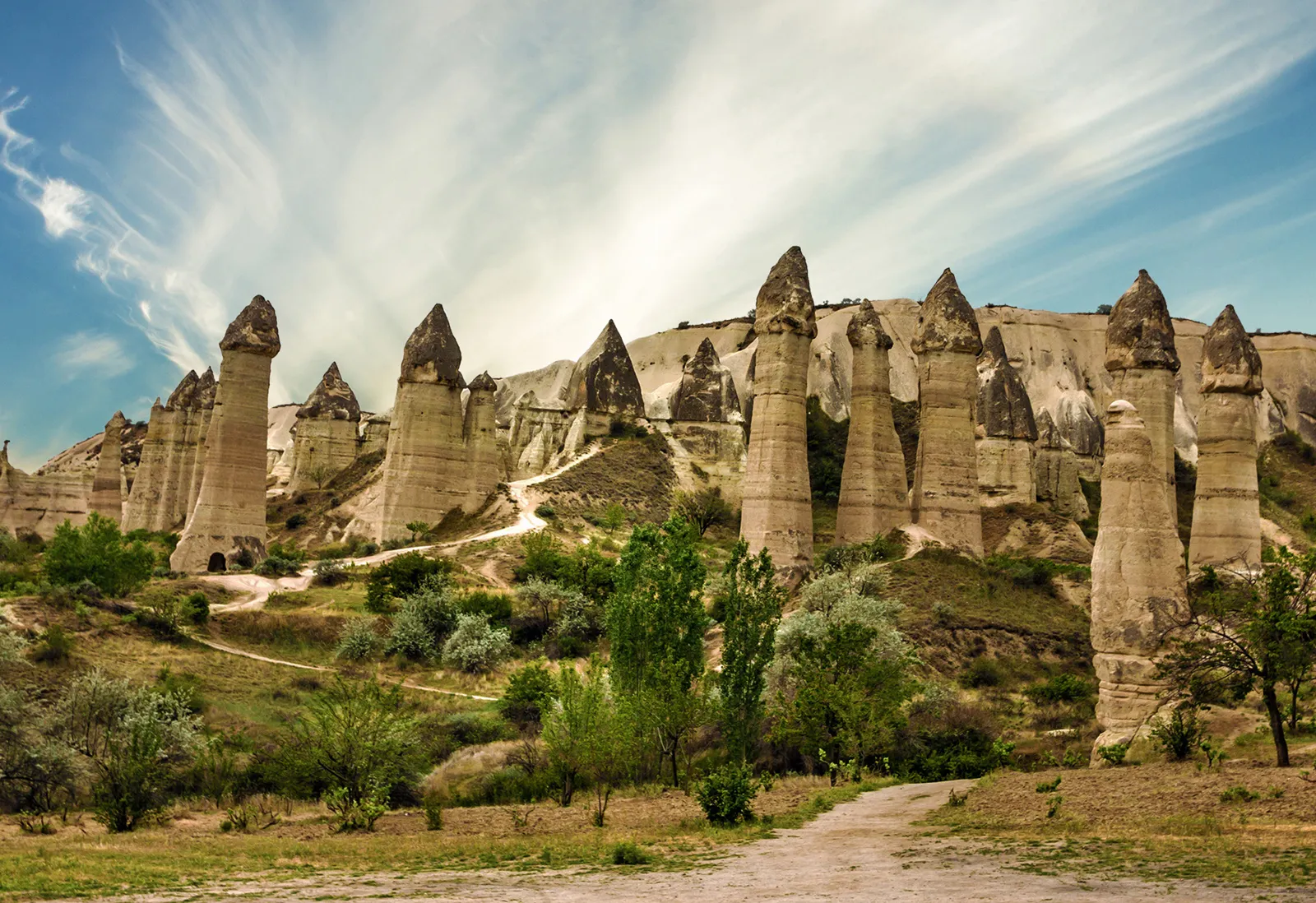
b. Kackar Mountains National Park
- Location: Black Sea Region, near Rize
- Highlights: Alpine meadows, glacial lakes, and diverse flora and fauna.
- Eco-Friendly Activities:
- Hiking and Mountaineering: Engage in guided hikes that promote conservation awareness.
- Canyoning and Rafting: Participate in water-based adventures with eco-conscious tour operators.
.webp)
c. Dilek Peninsula-Büyük Menderes Delta National Park
- Location: Near Kuşadası, Aydın Province
- Highlights: Diverse ecosystems including forests, wetlands, and coastal areas.
- Eco-Friendly Activities:
- Bird Watching: Observe migratory and endemic bird species in their natural habitats.
- Kayaking and Canoeing: Explore the delta’s waterways with minimal environmental impact.
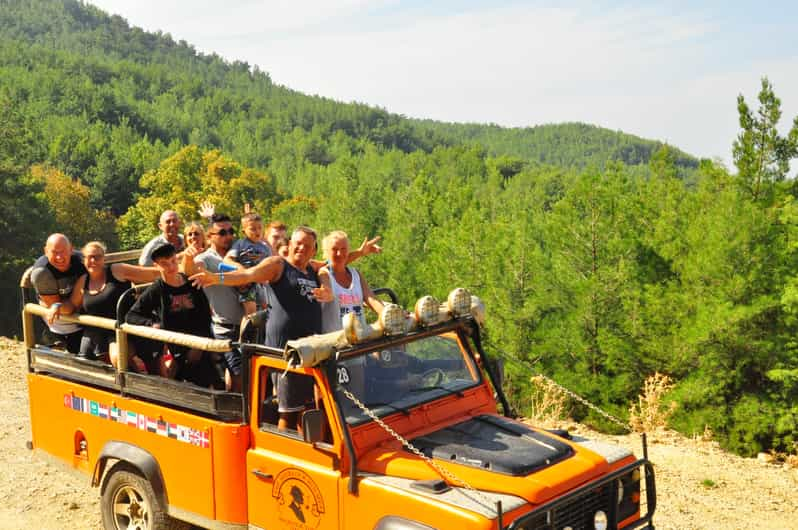
d. Mount Ararat National Park
- Location: Eastern Turkey, near Doğubayazıt
- Highlights: Highest peak in Turkey, volcanic landscapes, and historical sites.
- Eco-Friendly Activities:
- Mountaineering: Climb responsibly with guides who prioritize environmental stewardship.
- Photography and Nature Study: Capture the park’s stunning vistas while respecting nature.
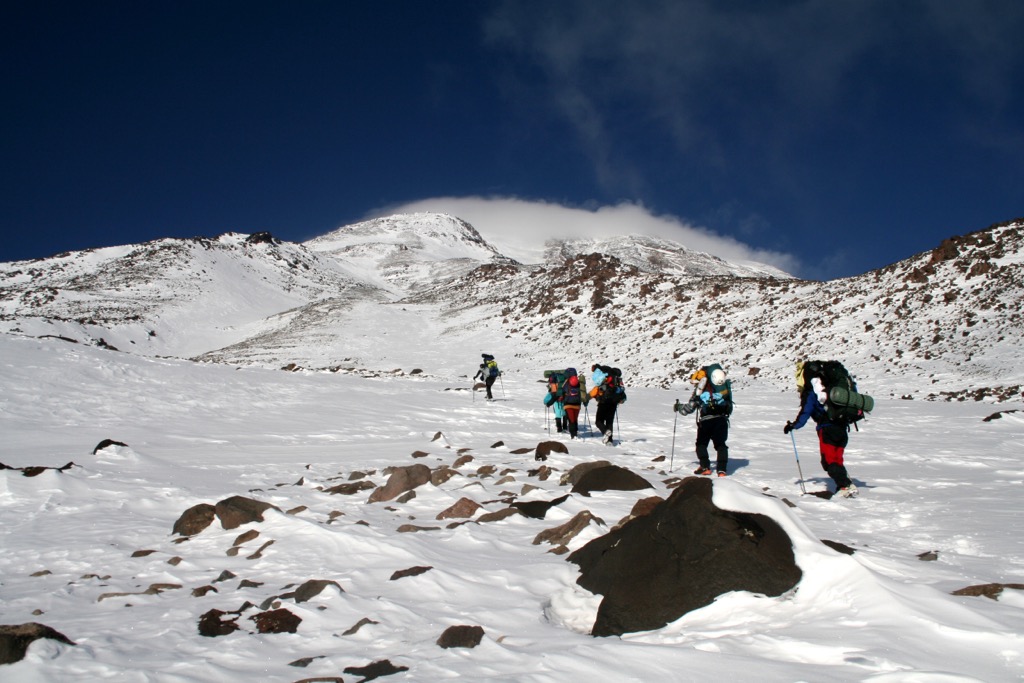
e. Yedigöller National Park (Seven Lakes)
- Location: Bolu Province, Northwestern Turkey
- Highlights: Seven interconnected lakes, dense forests, and rich biodiversity.
- Eco-Friendly Activities:
- Hiking and Picnicking: Enjoy family-friendly trails and designated picnic areas.
- Fishing: Engage in sustainable fishing practices to preserve aquatic ecosystems.
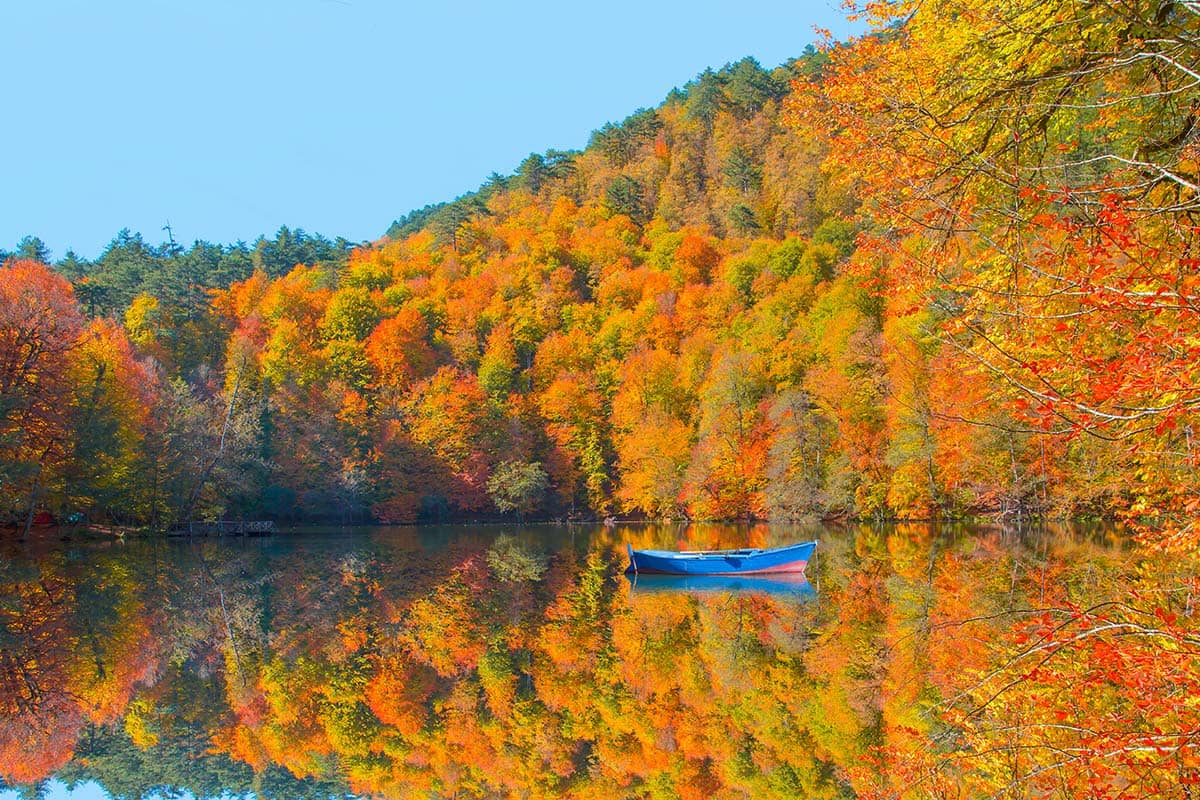
4. Eco-Friendly Activities in Turkey
a. Hiking and Trekking
Turkey offers numerous trails that cater to all levels of hikers. Popular regions include the Lycian Way, the trails in Cappadocia, and the routes in the Kaçkar Mountains. Always follow trail markers and guidelines to minimize environmental impact.
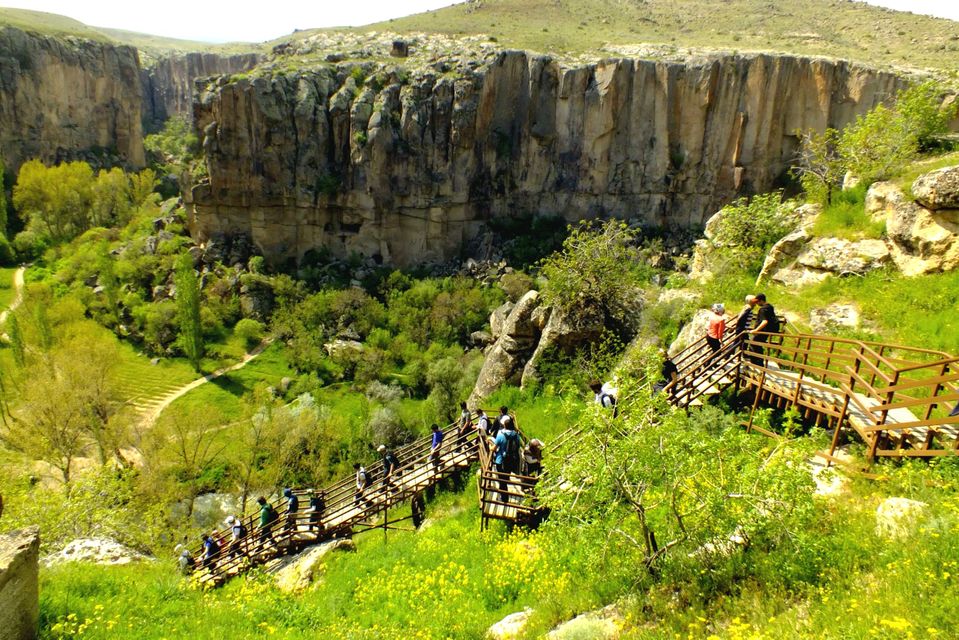
b. Bird Watching
With its diverse habitats, Turkey is a prime destination for bird enthusiasts. Visit places like Lake Manyas, Yedigöller, and the Kızılırmak Delta to observe a wide variety of bird species in their natural environments.
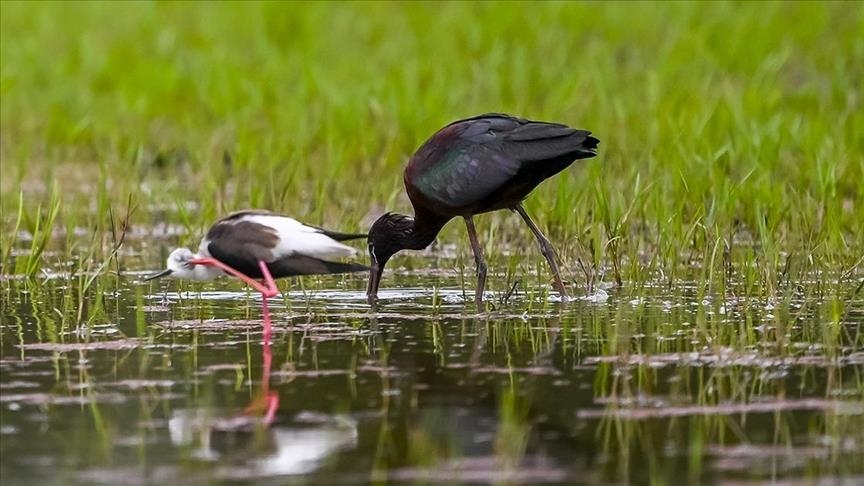
c. Sustainable Sailing and Boating
Explore the Turkish Riviera and the Turquoise Coast through eco-friendly sailing options. Choose operators who use fuel-efficient boats, adhere to waste disposal regulations, and respect marine life.

d. Visiting Eco-Museums and Conservation Centers
Learn about Turkey’s natural and cultural heritage at eco-museums and conservation centers. These institutions offer educational programs and promote environmental awareness.

e. Volunteering for Conservation Projects
Participate in local conservation efforts by volunteering with organizations focused on habitat restoration, wildlife protection, and environmental education.
5. Sustainable Accommodations and Dining
a. Eco-Lodges and Green Hotels
Stay at accommodations that prioritize sustainability through energy conservation, waste management, and the use of eco-friendly materials. Examples include:
- The Dorian in Bodrum: Emphasizes sustainability with energy-efficient practices and local sourcing.
- Aqua Fantasy Aquapark Hotel & Spa in Belek: Incorporates eco-friendly initiatives in its operations.
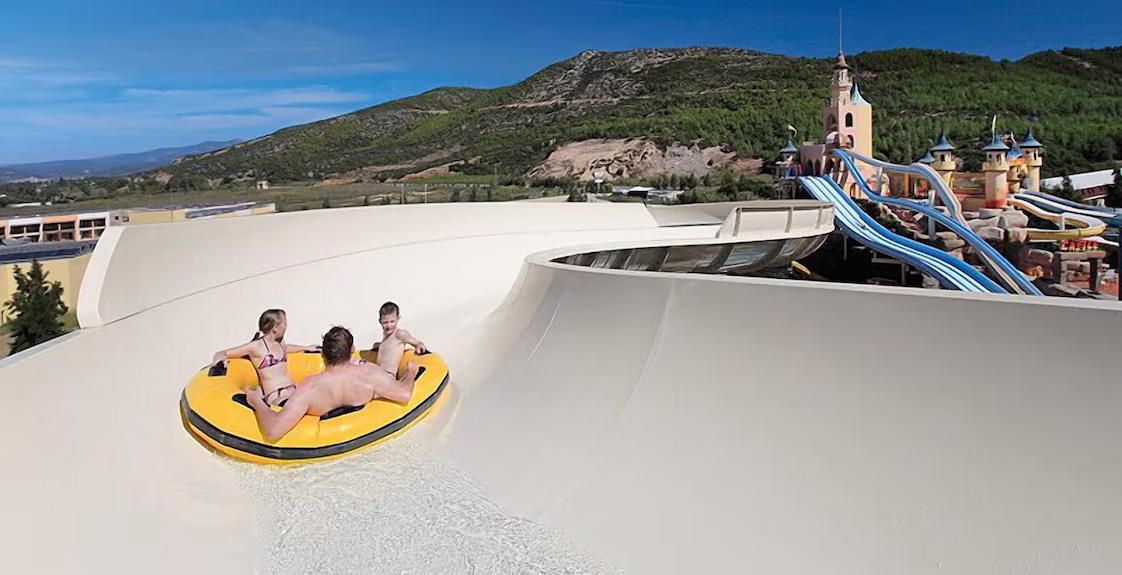
b. Farm Stays and Rural Guesthouses
Experience authentic Turkish culture while supporting rural communities. These accommodations often engage in sustainable farming practices and offer organic, locally sourced meals.
c. Sustainable Dining
Choose restaurants that prioritize locally sourced ingredients, minimize food waste, and implement eco-friendly practices. Look for places that offer vegetarian and vegan options, as plant-based diets generally have a lower environmental impact.
6. Supporting Conservation and Local Initiatives
a. Donations and Fees
Pay entrance fees to national parks and nature reserves, as these funds support conservation efforts. Consider making donations to local environmental organizations.
b. Responsible Souvenir Shopping
Purchase souvenirs that are ethically made and sourced. Avoid items made from endangered species or those that contribute to environmental degradation.
c. Advocacy and Awareness
Raise awareness about the importance of eco-tourism and conservation. Share your experiences responsibly on social media and encourage others to adopt sustainable travel practices.
7. Practical Tips for Eco-Tourism in Turkey
a. Plan Ahead
Research eco-friendly accommodations, activities, and transportation options in advance. This ensures a smooth and sustainable travel experience.
b. Pack Responsibly
Bring reusable items such as water bottles, shopping bags, and utensils to reduce single-use plastic waste. Pack light to minimize your carbon footprint.
c. Respect Local Cultures and Traditions
Engage with local communities respectfully and support their cultural practices. Learn basic Turkish phrases to enhance your interactions and show appreciation for their hospitality.
d. Stay Informed
Stay updated on local environmental regulations and guidelines. Follow park rules, respect wildlife, and participate in conservation efforts when possible.
Conclusion
Eco-tourism in Turkey offers a harmonious blend of adventure, relaxation, and cultural immersion, all while promoting the preservation of the country’s natural and cultural treasures. By adopting sustainable travel practices and choosing eco-friendly activities and accommodations, you contribute to the conservation of Turkey’s diverse ecosystems and support local communities. Whether you’re exploring the fairy chimneys of Cappadocia, hiking through the lush Kaçkar Mountains, or sailing along the pristine Turquoise Coast, Turkey welcomes you to experience its beauty responsibly.
Embrace sustainable travel and make your journey to Turkey both memorable and meaningful!
Happy Eco-Friendly Travels!
